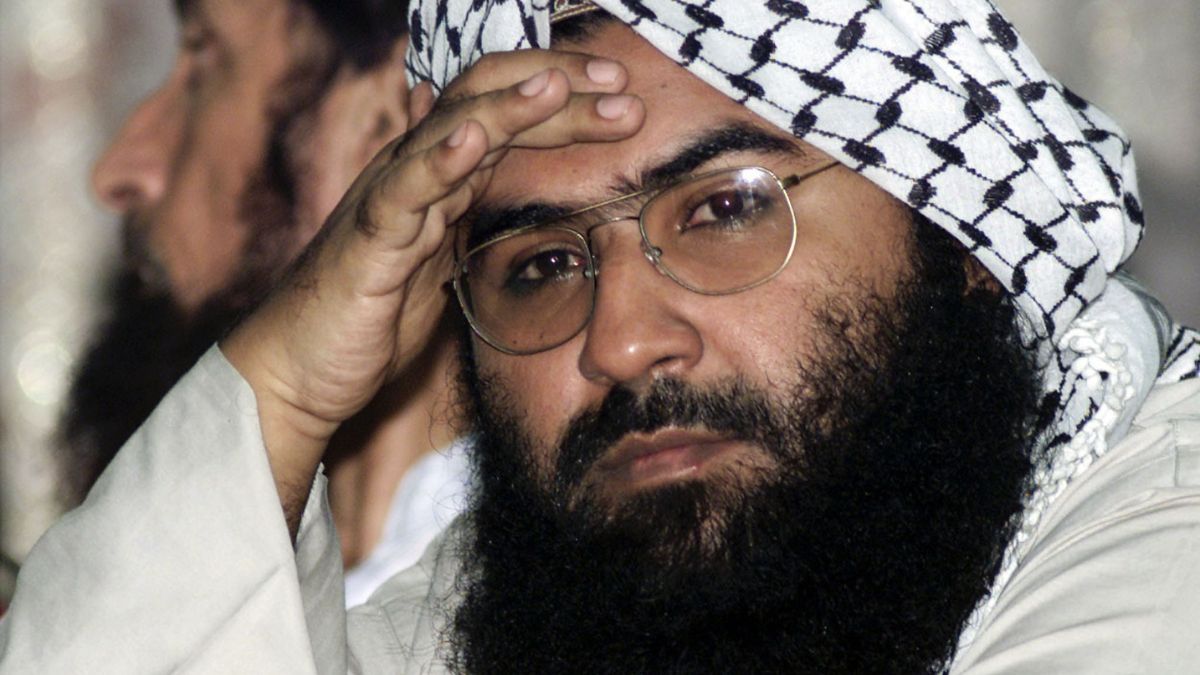Pakistan is apparently back to supporting terrorism, with its national government finding itself embroiled in controversy after reports suggested it may award a staggering Rs 14 crore in compensation to Masood Azhar, the UN-designated terrorist and leader of the proscribed group Jaish-e-Mohammed (JeM). This follows the deaths of 14 of Azhar’s family members during a recent Indian military operation, codenamed Operation Sindoor.
According to a report by The Tribune India, Prime Minister Shehbaz Sharif has sanctioned a compensation package of Rs 1 crore for each individual killed in the airstrikes, to be paid to the legal heirs. This means that if Azhar is determined to be the sole legal heir, he could potentially receive the entire amount of Rs 14 crore.
A statement circulating in the Pakistani media and attributed to Azhar confirmed the identities of those killed, which included his elder sister and her husband, a nephew and his wife, a niece, and five children from his extended family. The deaths occurred during Indian airstrikes that specifically targeted terror infrastructure in Bahawalpur, Punjab, approximately 400 kilometres from Lahore.
Operation Sindoor: India strikes at terror hubs
On 7 May, the Indian military launched a precision strike on what it described as key terror infrastructure, including the JeM headquarters at Jamia Masjid Subhan Allah, also known as the Usman-o-Ali campus. Indian officials have maintained that the operation was meticulously planned to avoid civilian casualties and that all targets were directly linked to terrorist activities.
The operation was carried out in response to a deadly terror attack in Pahalgam, which Indian authorities attributed to JeM operatives. Indian defence sources have since reiterated that Operation Sindoor was a necessary step to dismantle terrorist networks operating from Pakistani soil.
Refunding terror mastermind renews concerns
In addition to the compensation, the Pakistani government has reportedly pledged to rebuild homes destroyed during the strikes. This decision has drawn sharp criticism from both Indian officials and international observers, who fear that the reconstructed buildings could once again be used to facilitate terrorist activities.
Indian defence officials, quoted by The Tribune, expressed apprehension over the possibility that the compensation and rebuilding efforts could embolden terrorist groups and undermine regional security. “It raises serious questions about Pakistan’s commitment to counter-terrorism,” one official remarked.
Diplomatic fallout and regional tensions
The compensation plan is bound to further strain already tense relations between India and Pakistan. Prime Minister Narendra Modi, in his first address following the success of Operation Sindoor, warned that India would be closely monitoring Pakistan’s actions in the days ahead, particularly in the context of a fragile ceasefire understanding between the two countries.
International observers have also weighed in, with some suggesting that Pakistan’s move could be interpreted as tacit support for individuals and groups designated as terrorists by the United Nations. The development has reignited debates about Pakistan’s approach to counter-terrorism and its obligations under international law.
Impact Shorts
More ShortsThe controversy comes at a time when Pakistan is under intense scrutiny for their handling of cross-border terrorism and regional stability. Critics argue that compensating the family of a known terrorist leader not only sends the wrong message but could also hinder efforts to foster peace and security in South Asia.
As the situation develops, all eyes will remain on Pakistan’s leadership to see whether the government proceeds with the compensation, and on New Delhi as it calibrates its diplomatic and security response.
)